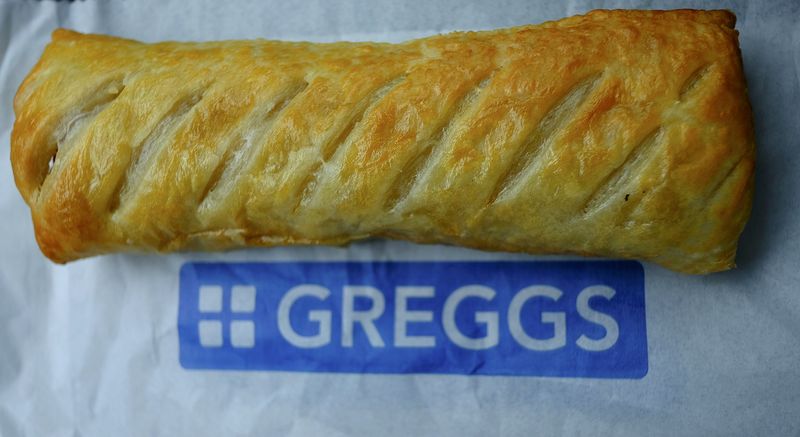Investing.com -- You know it’s crunch time for Brexit when Greggs (LON:GRG) starts stockpiling the butter.
The bakery and sandwich chain that has acquired cult status in the U.K. said Tuesday that It’s “preparing for the potential impact of the U.K.'s departure from the European Union by building stocks of key ingredients and equipment that could be affected by disruption to the flow of goods into the U.K.”
Greggs is a microcosm of the Irish border problem that is at the heart of the failure to break the Brexit deadlock. Greggs needs imports of milk and butter from Ireland for its pastry and drinks. Faced with sterling’s depreciation against the euro since 2016, and with new administrative costs from the Brexit-induced border changes, it has little scope to pass on price rises to a clientele with limited purchasing power.
The chain’s trading update also revealed that the buzz from its vegan sausage rolls, a British coda on the much-hyped Beyond Meat (NASDAQ:BYND) IPO earlier in the year, is fading somewhat. Sales growth slowed to 12.4% in the third quarter, down from over 15% at the start of the year, while like-for-like sales growth slowed to 9.4% from over 11%. Those figures are set to lose even more luster in the final quarter, thanks to a strong set of comparatives from a year earlier.
The management has turned conservative as the economy has slowed this year under the pressure of repeated Brexit deadlines. Greggs now expects only 90 net store openings this year, down from 100 at its latest update three months ago. It repeated long-standing concerns about pressures on both food input and labor costs.
The company’s shares fell 6.6% after Tuesday’s update, although they’re due a correction after a 60% increase since the start of the year – and they’re still one of the best-performing stocks in the sector in Europe this year, ahead of brewers AB Inbev (BR:ABI) and Carlsberg (OTC:CABGY), and defensive stalwarts such as Nestle (SIX:NESN) and Unilever (LON:ULVR).
Elsewhere, European indexes lost some early gains Tuesday as a raft of depressing-looking purchasing manager surveys underlined the bleak near-term outlook for the European economy, overshadowing the benefits of an even cheaper euro and pound. Ironically, the return of Brexit-related stockpiling led the U.K. manufacturing PMI to beat expectations, although at 48.3 it remained clearly in contraction territory.
The STOXX 600 was down 0.2% by 5:15 AM ET, while the FTSE 100 was down 0.1% and the German DAX was effectively unchanged.
